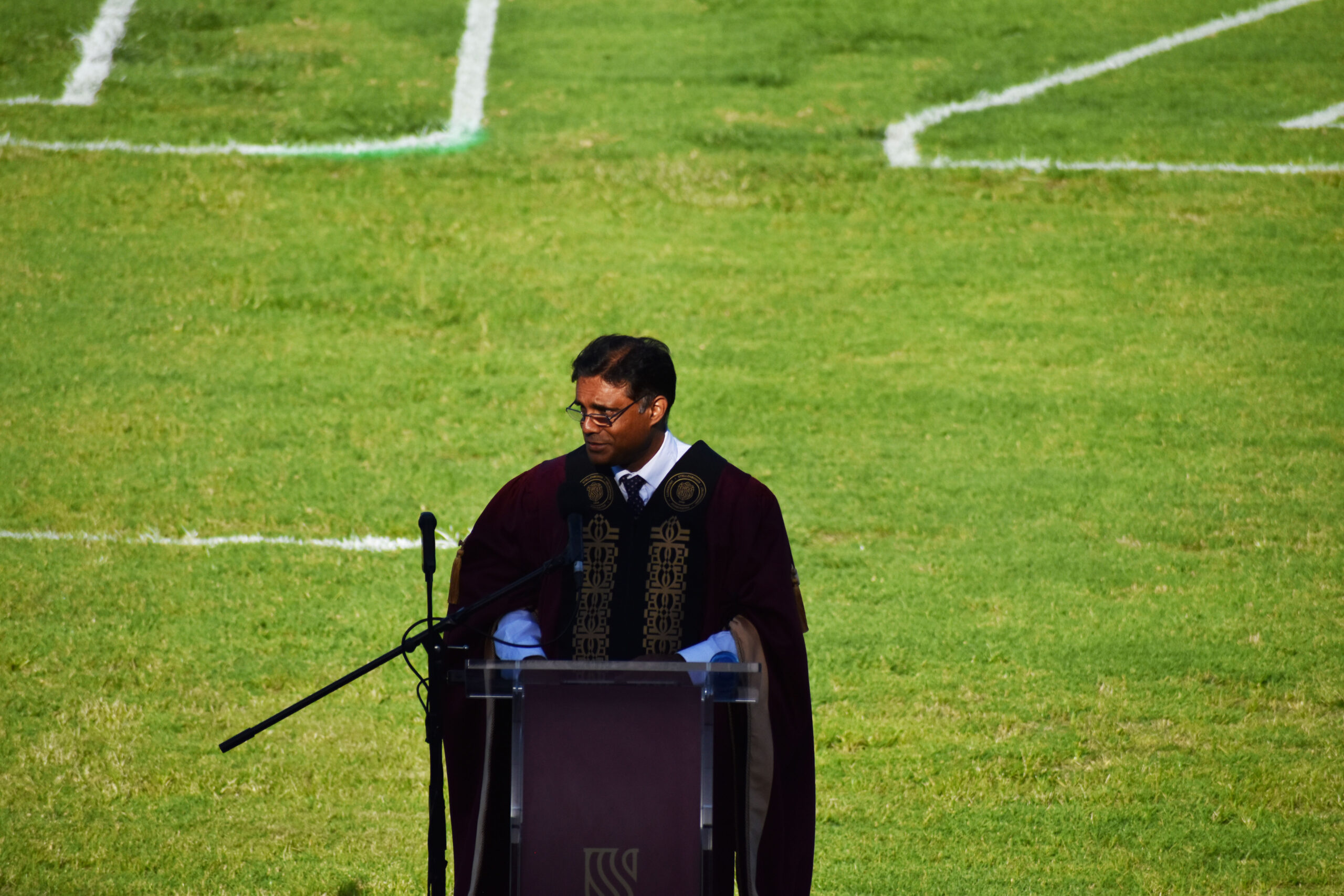By Lesedi Mnisi
Of the 31 undergraduate residences on the Stellenbosch University (SU) campus, which houses approximately 6500 students collectively, only five are certified to serve halaal meals. These residences include Metanoia Residence, Irene Women’s Residence, Goldfields Residence, Harmonie Women’s Residence and Monica Women’s Residence. This is according to SU’s webpage about student accommodation.
Jienaan Ishmail, a first-year BOccTher student, explained that halaal food is “food that is safe for us [Muslim people] to eat.”
She explained that if a business or catering place serves pork then it is not halaal, and added that some establishments might not be halaal but are halaal friendly. In these cases such establishments may serve pork; however, they use different facilities and tools to prepare halaal food and have measures in place to prevent cross contamination. For example, a halaal friendly restaurant may “use a different grill” to prepare halaal food.
This is specific to the preparation of meat, which must not be in contact with pork or pork derivatives (such as oil from pork) and must be “ritually slaughtered”, according to the South African National Halaal Authority (SANHA) website.
According to Martin Viljoen, SU’s media manager, the university has a transformation plan that “prioritises and expands initiatives of social inclusion, which promotes a welcoming and enabling institutional culture as well as student access and success”.
In alignment with this plan, Viljoen said that SU “has, over the years, added facilities to cater for Muslim students. Initiatives include the prayer room in the Neelsie and, importantly, continuously expanding on the kitchens catering for Muslim students.”
Muslim students who are placed in residences that do not serve halaal meals can book meals at a residence that is certified to do so and either eat there or fetch their meals and eat elsewhere. Most students opt to book these meals from a residence that is in the same cluster as them, according to Azihaarah Ebrahim, a third-year BAcc student.
Ebrahim, who orders her food from Metanoia Residence, said that “there [is] a variety of halaal options to choose from at the halaal certified residences.”
Halaal meal options available at the residence include “vegetarian, lifestyle, protein, lokal, standard and chicken surprise meals,” says Ebrahim.
According to Viljoen, this information is also available on SU’s webpage about “halaal meals on Stellenbosch Campus”. The option to book halaal meals at a halaal certified residence is not only available to students who stay in the university residences. Muslim students who stay in private accomodation and are part of Private Student Organisations (PSOs) can book at halaal residences within their cluster. This means that Venustia PSO and Pieke PSO, as part of Rubix Cluster, can book meals at Metanoia Residence, and students who in Aristea PSO and Vesta PSO, in the Wimbledon Cluster, can book their meals at Irene Women’s Residence. The deli in Huis Russel Botman House also serves halaal takeaways and is available for use by students who are part of the Wimbledon cluster.
Layla Adams, a second-year BA (Sport Science) student, said that the limited number of facilities that serve halaal food is “a big problem, . . . not just amongst residences [but] also in Stellenbosch in general. There are very limited halaal places to eat on campus for Muslim students and those that eat halaal food.”
Adams went on to say that “not all the residences need to have halaal catering services, but at least half should have to accommodate for Muslim students and those who eat halaal food.”
Aashiqah Salie, a third-year BAcc student and member of Nemesia Women’s Residence, says that her residence does not serve halaal meals and she has to eat at Metanoia Residence.
“The walking to and from Metanoia everyday does take some time, but sometimes I’m coming back from campus, so it’s on the way. I don’t particularly mind it [because I have gotten] used to it already. It would be more convenient if there was a halaal kitchen closer,” said Salie, who also added that she has not heard of any processes being put into place for halaal meals to be delivered to Nemesia Women’s Residence.
Saadiqa Petersen Palekar, a fourth-year LLB student who lived in Sonop Women’s Residence, on the other hand said, “It’s a bit of an inconvenience to walk to halaal residences . . . during meal times, especially with the limited time on our hands, and it’s unfair that our peers can just go down to the dining hall and their food is ready for them.”
According to Viljoen, many residences that do not serve halaal meals have these meals delivered to them; however, “[residences] that [do not] have this option yet can simply make the necessary arrangements with the relevant caterers in that particular residence.”
This process is one that is used in Sonop Women’s Residence in collaboration with Irene Women’s Residence’s catering services. Petersen Palekar said that although halaal meals were not delivered to Sonop during her first year, in 2020, processes were put in place for them to be ordered from Irene Women’s Residence and delivered to Sonop Women’s Residence.
These processes, according to Petersen Palekar, were put in place after attempts to have Sonop Women’s Residence catering services certified to serve halaal food failed due to “many difficulties”. These difficulties may be due to the certification process that establishments must undergo to receive certification.
Marzuq Alexander, Cape Town Office Manager of SANHA, said that in order to receive certification, an establishment must make an enquiry at a certifying body and provide a “letter of intent”. Thereafter, further information must be provided if necessary and an application is made. The establishment will then be required to pay a once-off fee and a recurring fee and be subject to “ongoing monitoring” to ensure it remains halaal.



